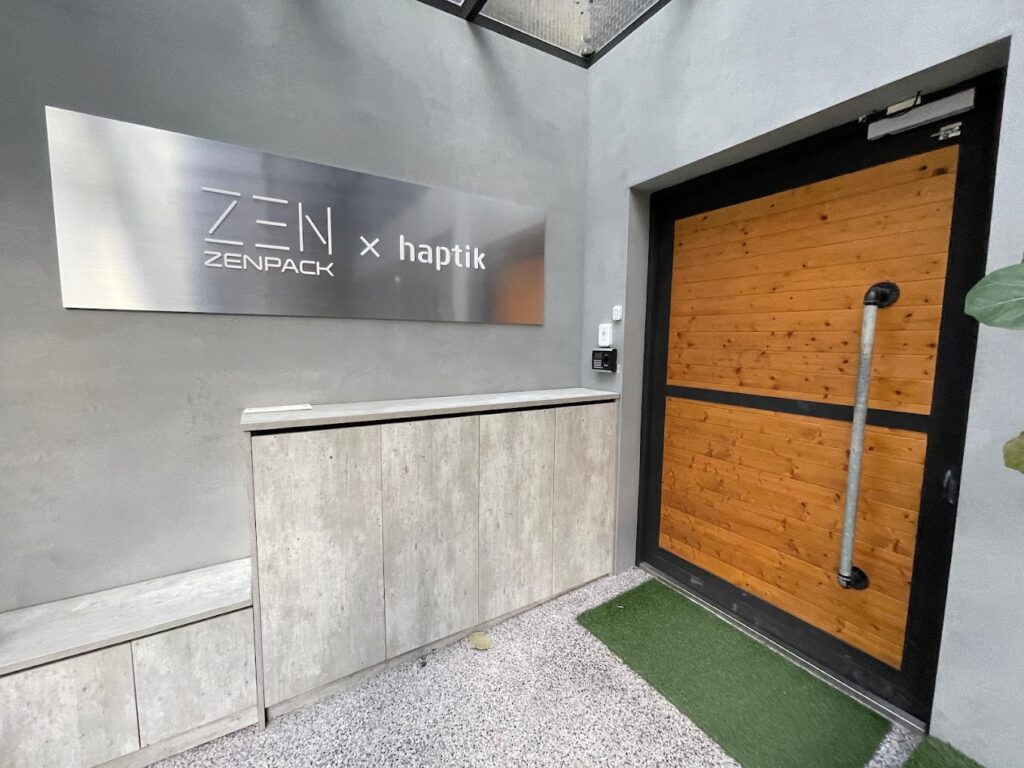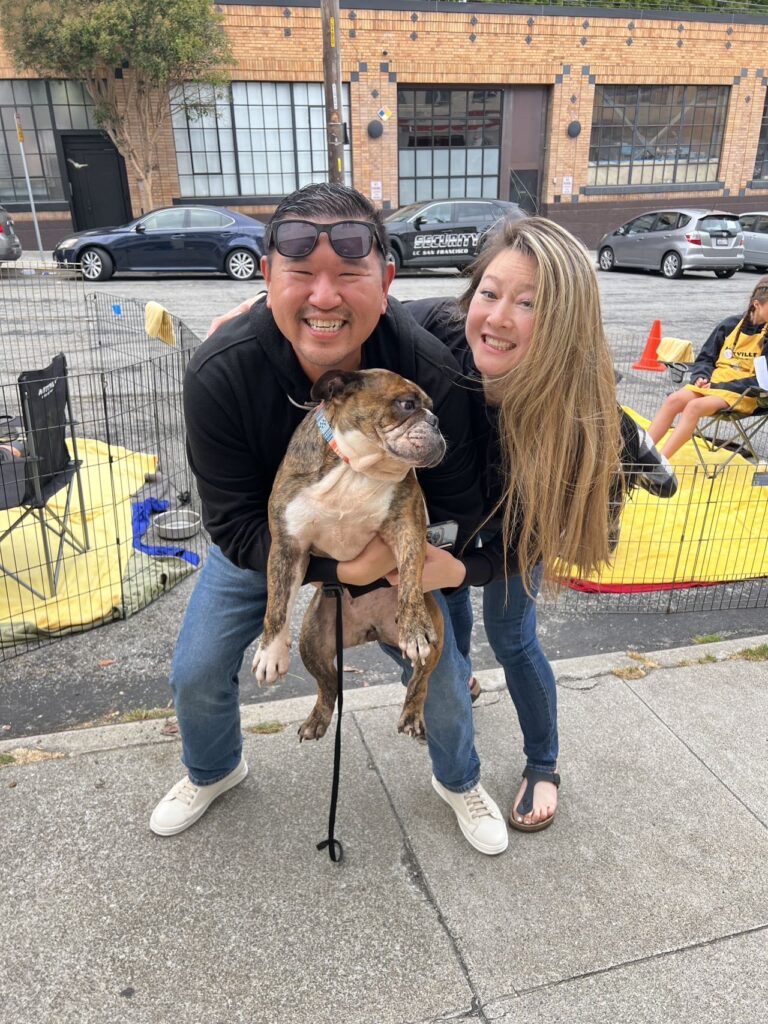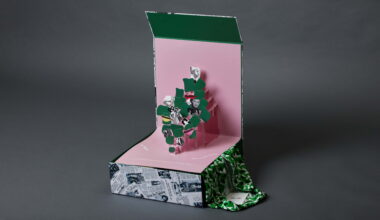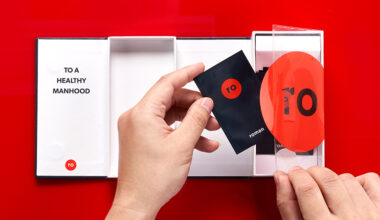From Taiwan to the US, Robin Tan feels like he has two cultures in his head. The co-founder and managing director of business development at Zenpack uses his multicultural upbringing to bridge the gap between US clients and Chinese manufacturing teams to produce sustainable packaging with a premium feel.
I sat down with Robin recently, one of four co-founders of Zenpack, to talk about how they’ve defined the culture at the packaging design house, what sustainability means to him, and dogs. Because every good conversation eventually leads to dogs, right?
(This interview has been edited for clarity and length.)
Where are you from, and how did you end up in California?
RT: I was born and raised in Taiwan, Xindian District in New Taipei City. When I was six years old, I believe, my parents started the immigration process of moving the entire family to the US. And at the time, I really didn’t have a choice—it’s yes or no at that age. When I was 15, we moved to San Jose, California. And I have been in the Bay Area ever since. That was back in 1997.

What is your role within the company?
RT: So, obviously, managing the sales team is my main job. When Zenpack was first founded there were four founders and one employee, a designer, and each of us has a different role for the company.
I was [working] alongside Leo [Chao, Zenpack Creative Director]. And our job was to go out and pitch ideas and win clients. And that created the culture that we have at Zenpack, which we slowly passed on to the rest of our team members.
And with Jeff [Lin, Zenpack President] in Taiwan, and Raymond [Wang, Zenpack COO] in China, I also manage the US side of the company.
So when you say culture, what is it that you’re referring to?
RT: First of all, the four of us are very close in age—we are all one year apart from each other. And then all of us are Taiwanese, born and raised in Taiwan. So in terms of our cultural background, it’s just identical. [As far as] culture, I also meant by how we work with each other and how we treat our employees. We established Zenpack as a family-oriented type of environment, and any new employees can probably attest to that. I think the culture is how we treat each other, our clients, and our partners.

How did Zenpack come together?
RT: So Jeff, Leo, and Raymond used to work together in the same company. This company is a publicly traded company in Taiwan, a paper mill.
Jeff and I met each other during college days through mutual friends. And we’ve been friends ever since. We play golf almost every weekend and hang out too.
I’ve always been a sales person. So when Jeff wanted to start Zenpack, he already had Raymond as the operation guy in China, Leo as the creative director, and himself as the finance person. All that was missing was a guy who can go out there and sell. And that’s when he approached me back in 2015.
When did Zenpack start to focus on sustainability? Was it from the beginning or was there a transition?
RT: I would say it was a transition. We started it back in… middle of 2017. From the very beginning we wanted to utilize sustainable materials and reduce as much waste as possible. That’s always been a core value of the company. But as a smaller company, at the time, our job was to do whatever the client asked.
Starting in mid 2017, we had quite a few clients under our belt and a good reputation in the packaging industry, and that made our voice a little stronger. We started to talk about the initiative more with clients: less wasteful designs, more sustainable materials.
And we built the program into our company. Strategic planning with the designers, making sure the sales team shares the right information. On the supply chain side, how are we able to provide more options on sustainable materials but still keep it affordable?
So what does sustainability mean to you?
RT: On the personal level, I have seen a lot of changes. Global warming plays a big part. I can see what plastic is doing to our ocean. It’s a really big topic, and everyone has a different way to contribute.
My way to contribute is what I do every day. And I can tell people how I feel. Hopefully that affects how they think about global warming and these other issues going on.
To me, sustainability is about how am I going to contribute to make sure that the next generation can enjoy what I’m enjoying today.
What are you working on with regards to sustainability?
RT: So there are two huge parts we are working on continuously. Number one is we want to continue to work with the right organizations. For example, plasticfree.com, Positive Luxury, FSC. These organizations help educate us.
There are so many things going on in the world and we can only know so much, so working with organizations that have the same mission and goals gives us the opportunity to improve ourselves.
On the operation side, they educated us to find the right manufacturers to partner with, and what the thresholds are of a good sustainable type of factory operation.
The second big part is how are we finding the right renewable, reusable types of material? And that takes time and manpower. For instance, one of my jobs is to go to trade shows to network and find out what’s new.
If we are able to utilize [seaweed paper or mussel hairs or other biomaterials] to design packaging, we can eliminate a lot of waste and use something that can be cycled back to the Earth. And I think that’s huge.
With these new technologies out there, it’s important for our role at Zenpack to utilize and empower them. A sad thing that we see a lot in the industry is awesome technology that fails because it cannot scale without the right investment. So we are trying to find those opportunities and find ways to partner with them so hopefully, we can grow together as companies.
How did Haptik [Zenpack’s sister agency] come about?
RT: After we had built up a pretty nice customer base, you know, we became sort of a trusted adviser to these clients, helping solve their problems. And then they came to us with problems outside of packaging design. A lot of those challenges are things that Haptik does now: product launches, website building, challenges with third parties, creating content for new SKUs, SEO and keywords.

We realized, hey, we can help with those, because our other company, Katris, that makes cat scratchers, had the same problems, the exact same problems. And so we started to talk to our clients, hey, we have this idea, you might want to give it a shot. It grew organically from there.
How did Zenpack get into logistics? Because not every packaging company handles that quite as extensively.
RT: Clients asked for it, really. They need to somehow get their packages from China to the US, and that is a very complex topic.
Many of our clients are startups that don’t have a logistics team, and they rely on us to help manage that part of their operation. It just goes back to, you know, solving our clients’ problems.
So today we have built quite a large logistics team, and our clients save money just because of the sheer amount we ship.
What do you like about sales?
RT: It’s exhilarating and exciting to me. I’m an outgoing type of person, an extrovert. I like to meet new people, make new connections. And that really helps me do what I love doing, which is to connect people and make them successful. And then, believe it or not, in the process of doing that, sales is just a byproduct.
What don’t you like about your position? Because we all have something.
RT: Okay, so this is sort of about the bigger picture. We built Zenpack from five people to almost 100 now. And when there are bigger environmental issues like the pandemic, for example, affecting the company, I don’t like that.
What really stresses me is how that affects the people we hire. It echoes what I said at the very beginning; our culture is family oriented. The people that we hire, I treat them like family. So their livelihood is always on the top of my mind. I always want my staff to be paid what they deserve.
I hit walls all the time, but I look forward to solving them and hopefully turning things around.
What does leading a team mean to you and how does it work best?
RT: Leading a team really means that I’m sharing everything I’ve got. When I say sharing, it could mean knowledge. It could be financially. It could be many different aspects. But the word sharing is how I would put it.
What does the future look like for Zenpack?
RT: We want to grow Zenpack and hope to spread our capabilities and services into different continents. Australia is a continent we want to go after. The EU is another. What I realized is that language is always the toughest challenge when you are trying to go into a different region. So our next step is we want to expand to markets where we share the same common language.
How does being bilingual help in your role?
RT: Immensely. As I said, my parents didn’t want me to move to the US until I was done with middle school in Taiwan. And the reason for that is because they wanted me to have a good foundation in Chinese.
So because they were adamant about that, I’m still able to write and read Chinese today. That really helps me communicate with my teams [in all three countries] without any issues. I can help with translations, stuff like that. So that’s more so on the internal side.
Now on the external side, I feel like I have two cultures in my head, Taiwan and the US—I went to high school here. So I have a pretty good foundation of US culture. And that helps when I’m communicating with clients. I can understand where they are coming from, put myself in their shoes, and I can translate that to my team in China.
Outside of work, what do you like to do for fun?
RT: Golfing and cars. Anything to do with cars. Taking the car to a track on track day, racing. I think speed is one of my hobbies. I have motorcycles myself. And last but not least, travel.
Where are your favorite places to travel so far?
RT: Japan and Scotland. [Both places] are so friendly, so comfortable. It doesn’t matter who you are.
I saw that you volunteer to help mock-interview for citizenship tests?
RT: Oh, yes, yes. This is something that I hold dearly in my heart. There are many senior citizens who are not from this country, and they are here mostly because of their sons and daughters. So I volunteer to act as the immigration officer and ask them questions to make sure they are prepared for their interview.
And then just to see the sheer joy in them after they get their citizenship—it means it worked. It’s priceless.
Anything else you’d like to talk about that I didn’t ask?
RT: One more thing. My wife and I foster dogs. We lost our own dog and we’re just not ready to own another one yet. So whenever we are in town—because we travel a lot—we will foster a dog and help them find a home.

And I’m working with Janie [Song, Zenpack marketing manager] to see if we could do some fundraising for these organizations starting next year. Every single US team member is an animal lover, so they are all very excited for that idea.
So yeah, if you want to talk to Robin about dogs or golf or sustainable packaging, he’s a pretty open book. No matter what you end up talking about, you’ll find out if Zenpack can help you.
If you want to know more about Zenpack’s services
Let our packaging consultants help you turn your idea into reality.


